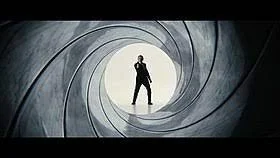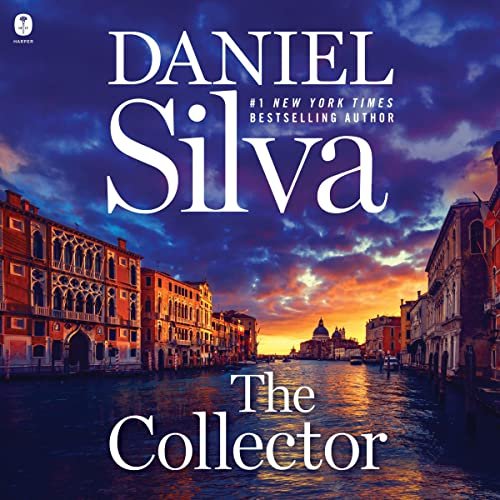As the doggiest days of summer are upon us, I find myself savoring every moment of the season’s blessedly slow pace. I think I cling to summer a little more desperately than most people, even more than the kids on my block who are celebrating its freedoms. And I treasure having the time to read, especially fiction.
One sure sign of summer for me is the arrival of a new Gabriel Allon novel. Gabriel Allon is sort of an Israeli James Bond; a globetrotting superspy working for the Jewish State against its many enemies whose evil, more often than not, threatens the world order beyond the Middle East.
Gabriel Allon is the creation of author Daniel Silva, a journalist-turned-novelist who earned his stripes by serving for many years as a Middle Eastern correspondent for United Press International. He’s created a series of novels that have certainly struck a chord with the public: Each summer’s new Gabriel Allon adventure rises to the top of the bestseller lists. As Israeli politics more and more elicit a sigh (and an oy), it’s a fun fantasy to step into this world.
“Gabriel Allon doesn’t want to carry the weight of the Jewish future—or the world’s—in his hands, but it is regularly thrust upon him: a theme which is very Jewish.”
Since it’s a literary conceit that superspies have superpowers, Gabriel has one too: he’s a master art-restorer. In these novels, before he’s called into to service, he’s often found in Italian cathedrals, a Jewish artist restoring Grand Masters’ church altarpieces with his meticulous paintbrush. (There’s an interesting metaphor at work there, but it’s summer and I don’t want to think about it too deeply.) Gabriel’s world inevitably brings together recurring characters such as London gallery owners, Corsican mafiosi, secretive Vatican officials, and world-famous classical musicians.
But Gabriel Allon is quite different from James Bond doing his duty for her majesty’s secret service. Gabriel doesn’t wear tuxedos or play cards with super-villains in Monte Carlo, nor is he a suave womanizer. He’s full of reticence and ambivalence, though when a mission arrives, he will ruthlessly see it through to a just conclusion.
Gabriel is no lone wolf like 007 either. Over the arc of the series, Gabriel has gone from being a master spy/assassin, to the ambivalent Head of the Mossad, to the now-retired figure who keeps getting sucked back in to saving the world. He works with a recurring team of Israeli Mossad agents, each one a distinctive Israeli character: a feral Russian, a passionate Yemenite, a woman damaged in her youth from a terrorist’s bomb, an aging scholar who worked in a Vienna office hunting Nazi war criminals before being recruited, and so on.
My favorite recurring character in these novels is the elderly and retired spymaster Ari Shamron, a fictional figure who is presented as the founder and shaper of Israel’s spy network, ruthlessly hunting down Israel’s enemies “by way of deception” (Proverbs 24:6, and the title of a famous expose of the Mossad). In the novels, Shamron earned his legendary status by engineering the capture Adolf Eichmann, which makes him an imaginative amalgam of Isser Harel and others. He’s a father figure to Gabriel, but also often gives voice to the coldblooded ruthlessness of the task at hand—a counterpoint to the moral ambivalence that Gabriel, or the reader, may feel.
What makes Daniel Silva stand out in the genre of spy fiction is the authority with which he writes about the world’s crises. Sure, the books are summer potboilers, and as such, they don’t qualify as great literature. But they seem rooted in very timely evils. The new novel The Collector was written in 2022-23, and the ongoing Russian assault on Ukraine provides the intrigue. While the book is populated by art thieves, corrupt energy officials, bloodthirsty Russian oligarchs, and amoral white collar criminals of all sorts, there is one archvillain behind it all: “Volodya,” as his nervous acquaintances know him. Vladimir Vladimirovich Putin.
Putin never actually appears in the novel, but the author makes clear that he is the mastermind of the Russian kleptocracy that inherited the Soviet Union’s morals and values—and its nukes. As such, this villain is significantly scarier than, say, Goldfinger or Dr. No or Ernst Stavro Blofeld, because Putin is all-too-real.
The book elaborates on Putin’s viciousness. As the Russians plot a false-flag operation in Ukraine, we read this exchange among his subordinates:
“How many will die?
General Belinsky had shrugged. They were only human beings, after all.
“But they’re Russian citizens.”
“So were the people in those apartment buildings back in ninety-nine. Three hundred were killed, just to make certain that Volodya won that first election.” (The Collector, p.336)
The Gabriel Allon adventures provide several valuable gifts. For starters, they are “just” novels—their primary purpose is the pleasure of a good page-turner, perfectly timed for summer reading.
Second, Daniel Silva’s writing has the scent of insider-truth. He not only has done his investigative homework, but he also seems to know things from the contacts he made through his years as a correspondent in Washington and the Middle East. I trust him, for instance, when he implies that Putin’s insidiousness and cruelty go far deeper than most of us realize. (I write this in the days after Yevgeny Prigozhin, the mercenary who led a rebellion against Putin’s military two months ago, was killed in a mysterious plane crash.) All of Silva’s books seem full of insider information—and all of them have an Author’s Note at the end that delineate which aspects of the book are fiction and which are rooted in reality.
Most importantly, there’s the question of whether or not the world needs an Israeli James Bond.
The key distinction between Gabriel Allon and James Bond is the most obvious: Allon is Jewish, working for the security of the Jewish state. As such, he doesn’t have the luxury of being an amoral, smirking playboy like Bond. Although the series almost never gets preachy about Zionism, there is always, beneath the surface, a sense of “we’re fighting for our lives, because we have to.” Gabriel Allon, a fictional creation, was recruited in the wake of the very real Munich Olympics Massacre, when Palestinian terrorists murdered 11 Israelis while the whole world was watching. As Gabriel sought out and assassinated the perpetrators, he paid a devastating price: a terrorist’s car bomb killed his son and maimed his first wife. That wife, Leah, recurs in the novels as a spectral presence living in a hospital in the Jerusalem hills, unable to make new memories, caught in an awful moment in time of Jewish victimhood and personal tragedy.
This darkness gives the books an edge, an awareness, that most potboilers lack. Gabriel Allon is a perpetually ambivalent figure. We sense that he’d prefer to be with his wife and kids, or with his paints and brushes. He doesn’t want to carry the weight of the Jewish future—or the world’s—in his hands, but it is regularly thrust upon him: a theme which is very Jewish.
Neither Allon nor Daniel Silva is prone to making long speeches about the justice of their cause. In fact, we sense that each of them is well aware of the moral imperfections of their case. Gabriel Allon’s Jewishness is not found in the Talmud or the synagogue. It’s found in a wearying view of Jewish history, especially in Europe, that led to tragedy and the absolute need for a Jewish homeland (and its defense forces). Here’s a brief exchange from The Collector, between Gabriel and his Danish intelligence counterpart:
“A promising beginning.”
“It’s early, Lars.”
“I’ve always believed in the power of positive thinking.”
“That’s because you’re Danish,” said Gabriel. “I find it comforting to prepare myself for a calamity and to be pleasantly surprised if it turns out to be a garden-variety disaster instead.” (p.268)
There’s also no small amount of fantasy-projection going on in these novels, too. Any Jewish reader of these stories will say, “If only we had a secret weapon like Gabriel Allon!”
Throughout this hot summer of 2023, Israel’s existential threats seem to be internal as much as external. No superspies will rescue us from the current crisis, which calls upon the Jewish people as a whole to take a stand. In the meantime, I’m glad to know that Gabriel Allon is out there where he belongs, ready to set aside his paintbrushes and step into service when he’s needed. Just in time for summer.

